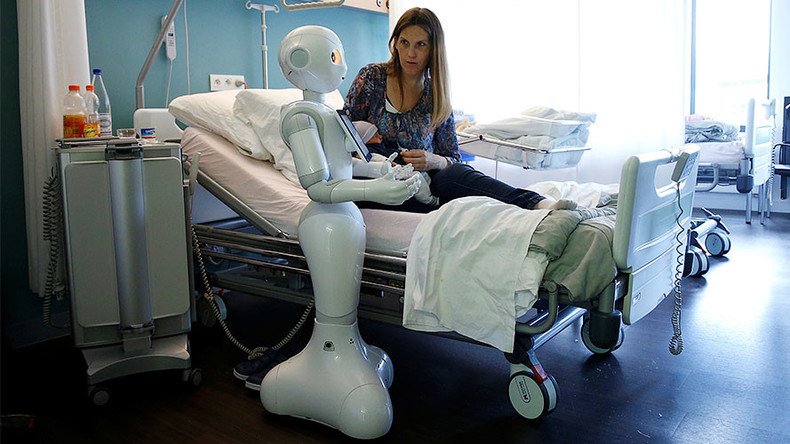Robot kill switches & legal status: MEPs endorse AI proposal

A European Parliament committee has voted in favor of a draft report that proposes granting legal status to robots, categorizing them as “electronic persons”.
The draft report, approved by 17 votes to two and two abstentions by the European Parliament Committee on Legal Affairs, proposes that “The most sophisticated autonomous robots could be established as having the status of electronic persons with specific rights and obligations, including that of making good any damage they may cause.”
My report on#robotics adopted today including a debate on tax and social system and the possible introduction of a general basic income!
— Mady Delvaux (@mady_delvaux) January 12, 2017
This Morning: @EP_Legal vote on Civil Law Rules on #Robotics VIDEO: https://t.co/SKI5MKk606pic.twitter.com/i7uinBcIB6
— EP Audiovisual (@europarlAV) January 12, 2017
Authored by Luxembourg MEP Mady Delvaux, the report proposes definitions and outlines rules to govern how robots interact with humans “now that humankind stands on the threshold of an era” that it claims will see artificial intelligence (AI) “unleash a new industrial revolution.”
Press release after today's vote at @EP_Legal :"#Robots: Legal Affairs Committee calls for EU-wide rules" https://t.co/XTm7Bico9d
— JURI Committee Press (@EP_Legal) January 12, 2017
AI developers will have to ensure their creations follow a set of rules that prohibit them from harming a human or allowing a human to come to harm through their inaction. AI can protect their own existence under the rules, if this does not harm any humans.
“A robot may not harm humanity, or, by inaction, allow humanity to come to harm,” the rules state.
An opt-out mechanism or kill switch is also proposed in the report, ensuring any rogue robots can be turned off easily (provided the designer hasn’t let their AI outsmart them).
The report also calls for robot definitions and subcategories to be proposed based on the device’s autonomy, making certain categories with higher autonomy more responsible for their actions.
“Whereas in the scenario where a robot can take autonomous decisions, the traditional rules will not suffice to activate a robot's liability, since they would not make it possible to identify the party responsible for providing compensation and to require this party to make good the damage it has caused,” the report reads.
In an interview last week Delvaux said standardization and liability were essential for the future of AI.
Civil Law Rules on #Robotics : Interview of @mady_delvaux Watch VIDEO: https://t.co/DUX4vKhfnapic.twitter.com/x337FBzKdk
— EP Audiovisual (@europarlAV) January 12, 2017
She claimed robots will not totally replace humans in the workplace, instead “There will be a cooperation between robots and humans. I imagine that everyone can learn to work together with the robots.”
“A robot is not a human and will never be human. A robot can show empathy but it cannot feel empathy,” she added.
Delvaux also proposes a charter for designers that robots “should not be made to look emotionally dependent. You must never think that a robot is a human, that he loves you or he is sad.”
The report will next be voted on by the full house in February, requiring an absolute majority.













